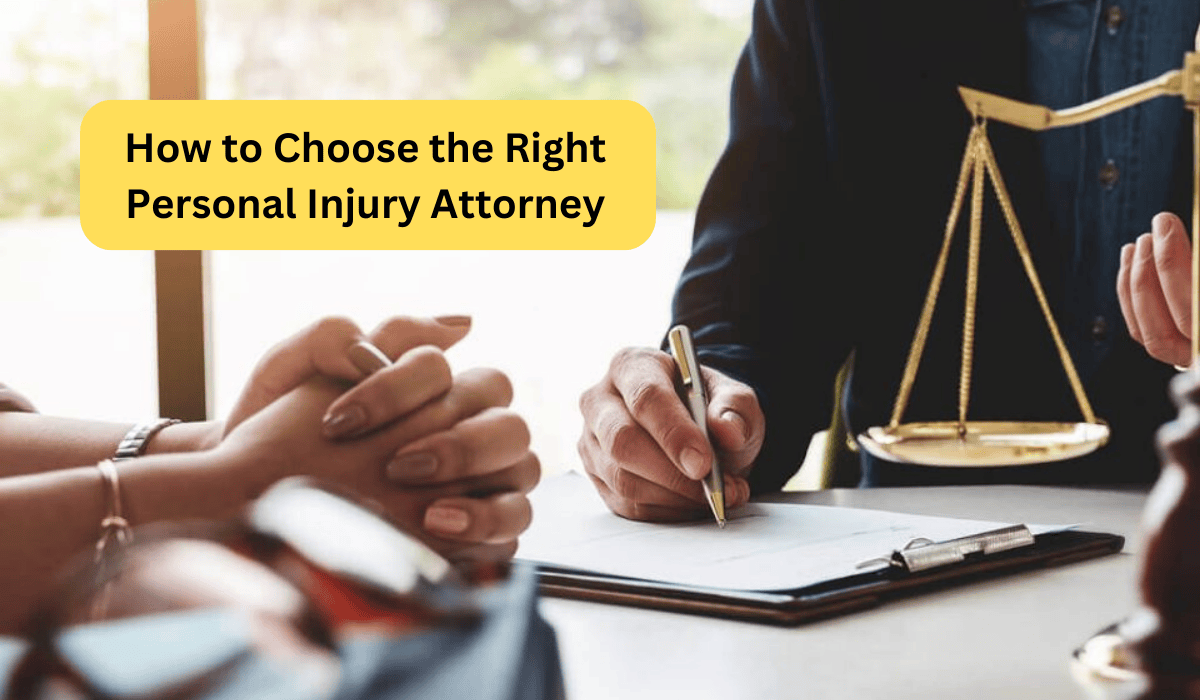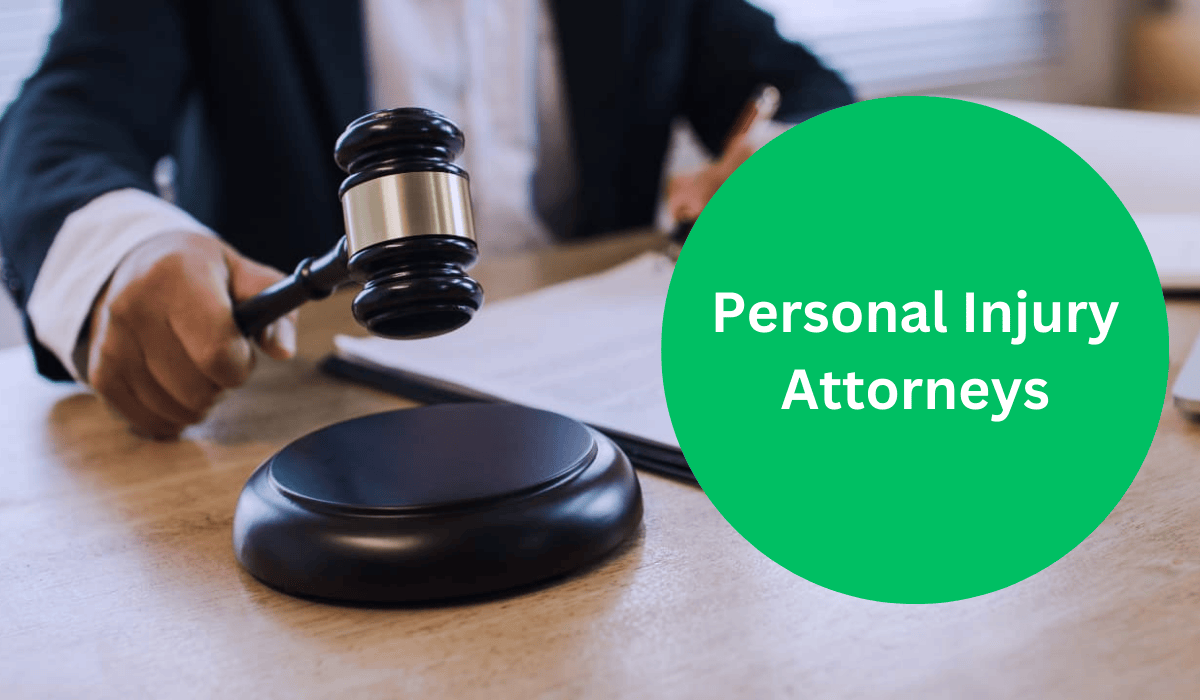Personal injury law plays a vital role in ensuring justice is served when someone suffers harm due to another party’s negligence. Personal injury attorneys specialize in navigating this complex area of law, offering expert assistance to individuals seeking compensation for their injuries. In this blog, we will explore everything you need to know about personal injury attorneys, their role, how they help victims, and the growing trend of using AI in personal injury cases.
What is a Personal Injury Attorney?
A personal injury attorney is a legal professional who represents individuals injured in accidents or as a result of another party’s negligence. Their primary goal is to help clients receive compensation for medical bills, lost wages, pain and suffering, and other related damages. These attorneys are well-versed in tort law, which governs civil litigation for personal injuries, and are skilled in negotiating settlements as well as litigating in court when necessary.
Types of Cases Personal Injury Attorneys Handle
A. Car Accidents
Car accidents are one of the most common personal injury cases. A personal injury attorney works to prove negligence, whether it’s distracted driving, reckless driving, or driving under the influence. They gather evidence such as police reports, witness testimonies, and medical records to build a strong case.
B. Medical Malpractice
Medical malpractice cases arise when healthcare professionals fail to provide the appropriate standard of care, resulting in injury or harm to the patient. Personal injury attorneys in these cases consult medical experts to determine whether malpractice occurred and fight for compensation for the victim.
C. Workplace Injuries
When an employee is injured on the job, they may be entitled to workers’ compensation. However, in some cases, third-party negligence may also play a role. A personal injury attorney helps determine who is liable and ensures the victim receives the benefits and compensation they deserve.
D. Slip and Fall Accidents
Property owners have a responsibility to maintain safe premises. If a person slips, trips, or falls due to unsafe conditions, such as wet floors or uneven walkways, a personal injury attorney can hold the property owner accountable for the injury.
E. Product Liability
Defective products that cause injury to consumers can result in product liability lawsuits. Personal injury attorneys pursue claims against manufacturers, distributors, and retailers when a product causes harm due to design, manufacturing defects, or inadequate warnings.
What Qualifies as a Personal Injury Case?
Not every injury leads to a personal injury lawsuit. For a case to qualify, the following elements are typically required:
- Duty of Care: The defendant must have had a duty to act or refrain from acting in a certain way.
- Breach of Duty: The defendant breached this duty through negligent, reckless, or intentional conduct.
- Causation: The breach of duty must have directly caused the injury.
- Damages: The victim must have suffered actual damages, such as medical expenses or lost wages, as a result of the injury.
The Role of a Personal Injury Attorney in a Lawsuit
Personal injury attorneys perform several crucial tasks during a lawsuit:
- Case Evaluation: They evaluate the merits of the case and estimate potential compensation.
- Evidence Gathering: Attorneys collect medical records, witness testimonies, and other evidence.
- Negotiation: They negotiate with insurance companies or the defendant to reach a settlement.
- Court Representation: If a settlement isn’t possible, personal injury attorneys represent the client in court, fighting for fair compensation.
How to Choose the Right Personal Injury Attorney
A. Experience and Expertise
Look for an attorney with specific experience in personal injury law. Their expertise in handling similar cases can significantly impact the outcome of your claim.
B. Client Testimonials and Reputation
Reputation matters in personal injury law. Check online reviews, testimonials, and case results to assess the attorney’s success rate and client satisfaction.
C. Fee Structure and Payment Options
Most personal injury attorneys work on a contingency fee basis, meaning they only get paid if you win your case. However, it’s important to discuss any potential upfront costs or fees for specific services.

How Personal Injury Attorneys Help Victims Seek Compensation
A. Negotiating Settlements
One of the primary ways attorneys help victims is by negotiating settlements. They handle communication with insurance companies and defendants to ensure the client receives fair compensation.
B. Filing Lawsuits
If negotiations don’t result in an acceptable settlement, personal injury attorneys file lawsuits on behalf of their clients, ensuring the legal process is followed.
C. Representing Victims in Court
Attorneys represent clients in court by presenting evidence, questioning witnesses, and making persuasive arguments to secure a favorable judgment.
The Process of Filing a Personal Injury Claim
A. Initial Consultation
The process begins with an initial consultation where the attorney evaluates the case and advises the client on the next steps.
B. Investigation and Evidence Gathering
Attorneys gather evidence to support the claim, including medical records, accident reports, and witness statements.
C. Negotiation and Settlement
Once the evidence is compiled, attorneys negotiate with the opposing party to reach a settlement without going to trial.
D. Trial (If Necessary)
If negotiations fail, the attorney will proceed to trial, where they argue the case before a judge and jury to seek a favorable outcome.
Contingency Fees: How Most Personal Injury Attorneys are Paid
Personal injury attorneys typically work on a contingency fee basis. This means the attorney’s fee is a percentage of the settlement or court award, usually ranging from 25% to 40%. The contingency fee arrangement makes legal representation more accessible since clients don’t need to pay upfront fees.
The Importance of Time Limits: Statutes of Limitations
Every personal injury case is subject to a statute of limitations, which limits the time a victim has to file a lawsuit. In most states, this ranges from one to four years, depending on the type of case. It’s crucial to consult with an attorney as soon as possible to avoid losing the right to pursue compensation.
Common Mistakes to Avoid When Hiring a Personal Injury Attorney
- Failing to Research: Not all attorneys are equal. Research the attorney’s track record before hiring.
- Choosing Based on Cost Alone: While fees matter, an attorney’s experience and expertise are more important in determining the success of your case.
- Not Understanding the Fee Agreement: Make sure you fully understand the attorney’s fee structure, including any potential additional costs.

How Personal Injury Attorneys Work with Insurance Companies
Insurance companies often try to minimize payouts, and without a skilled attorney, victims may accept settlements that are far less than what they deserve. Personal injury attorneys handle all communication with insurance companies, ensuring that the client’s rights are protected and that any settlement reflects the full extent of their injuries and losses.
AI in Personal Injury Law: The Future of Legal Assistance
AI is revolutionizing various industries, and personal injury law is no exception. AI tools are being integrated into the legal process to improve efficiency and outcomes.
A. AI-Powered Case Evaluation Tools
AI case evaluation tools can analyze case details, medical records, and accident reports to assess the strength of a personal injury claim, providing attorneys with valuable insights.
B. Virtual Legal Assistants
Virtual assistants powered by AI can perform legal research, draft documents, and handle administrative tasks, allowing attorneys to focus more on case strategy.
C. AI in Settlement Prediction
AI algorithms can analyze past case settlements and court verdicts to predict potential compensation amounts, helping attorneys and clients make informed decisions during negotiations.
The Benefits and Challenges of Using AI Personal Injury Attorneys
Benefits:
- Increased Efficiency: AI can automate time-consuming tasks, such as document review and legal research, allowing attorneys to focus on more complex aspects of the case.
- Data-Driven Insights: AI provides attorneys with valuable data that can improve case strategies and settlement negotiations.
- Cost Reduction: AI tools can lower the cost of legal services by reducing the amount of time attorneys spend on routine tasks.
Challenges:
- Lack of Human Intuition: While AI can process data efficiently, it lacks the human intuition and empathy that often play a critical role in personal injury cases.
- Privacy Concerns: The use of AI in legal settings raises concerns about data privacy and the security of sensitive client information.
Frequently Asked Questions About Personal Injury Attorneys
Q1: How much does it cost to hire a personal injury attorney?
Most personal injury attorneys work on a contingency fee basis, meaning you only pay if you win your case. The fee is typically a percentage of the settlement or court award.
Q2: How long do personal injury cases take to resolve?
The length of time varies depending on the complexity of the case. Simple cases may settle within months, while more complex cases that go to trial can take years.
Q3: What if I can’t afford a personal injury attorney?
Because personal injury attorneys often work on contingency, you won’t have to pay upfront costs. If you win the case, the attorney will take a percentage of your settlement.
Q4: Can I handle a personal injury case without an attorney?
While it’s possible to handle a personal injury case on your own, it’s not advisable. Attorneys understand the legal process and are more likely to secure higher compensation.
Q5: What should I bring to my initial consultation with a personal injury attorney?
Bring any documentation related to your case, including medical records, police reports, photographs of the accident, and any correspondence with insurance companies.
Q6: Will my case go to trial?
Most personal injury cases settle before reaching trial. However, if a fair settlement cannot be reached, your attorney may recommend taking the case to court.
Conclusion: The Value of Legal Representation in Personal Injury Cases
Personal injury attorneys are essential advocates for individuals seeking justice and compensation for their injuries. Their expertise in negotiating with insurance companies, gathering evidence, and navigating the legal process ensures that victims receive the compensation they deserve. As AI continues to enhance legal services, the future of personal injury law may see even greater efficiency and effectiveness, but the role of the attorney remains indispensable.
Countdown Timer
30
Your Code: SADHIN71
- 10 Essential Facts You Must Know About Bankruptcy Attorneys in 2024 - September 4, 2024
- Top Divorce Lawyers: Expert Guidance and the Rise of AI Divorce Lawyers - September 4, 2024
- The Ultimate Guide to Personal Injury Attorneys - September 4, 2024








